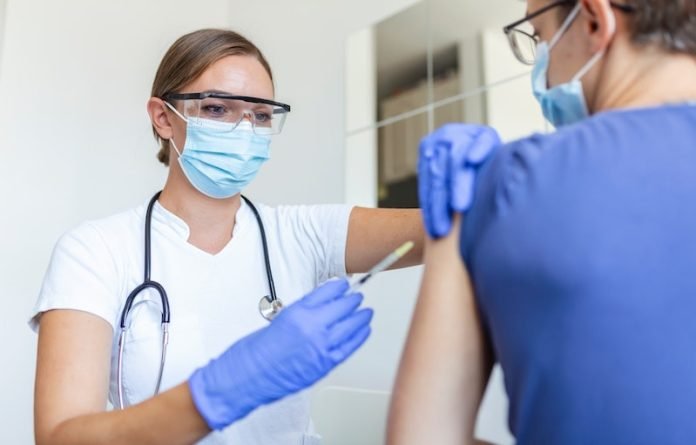
In a study from the University of Virginia, scientists found the benefits of a COVID-19 booster.
The new findings shed light on how mRNA boosters—both Pfizer and Moderna—affect the durability of our antibodies to COVID-19.
A booster made for longer-lasting antibodies for all recipients, even those who have recovered from a COVID-19 infection.
These results fit with other recent reports and indicate that booster shots enhance the durability of vaccine-elicited antibodies.
Antibody levels naturally decline over time after an infection or after vaccination, but higher levels are thought to be more protective.
Thus, longer-lasting antibodies would be expected to provide more sustained immunity against severe COVID-19.
In the current study, researchers looked at antibody levels following a booster in 117 UVA employee volunteers and compared those results with the levels seen in 228 volunteers after their primary vaccination series.
Antibody levels one week to 31 days after the primary series and booster were similar, but the boosted antibodies stuck around longer regardless of whether the person had had COVID-19.
The researchers found that the antibodies generated by the Moderna booster proved longer lasting than those generated by the Pfizer booster.
Moderna’s antibody levels exceeded Pfizer’s out to five months, the end of the study period.
Although the findings were strong, the team notes that both mRNA vaccine boosters provide enhanced and fairly similar levels of protection against COVID-19 in recently published large epidemiologic studies.
Because the frequency of COVID-19 infections in the community was relatively high when the boosters were being given, the researchers also studied the effect of COVID-19 infection on antibody levels.
The findings suggest that the enhanced antibody durability observed after booster vaccination was not explained by hybrid immunity.
This study adds to the accumulating evidence that boosters are an important of protecting the community from COVID-19.
If you care about COVID, please read studies about Vitamin D deficiency linked to severe COVID-19, and Mediterranean diets could help people recover after COVID infection.
For more information about COVID, please see recent studies that mouthwashes may suppress COVID-19 virus, and results showing zinc could help reduce COVID-19 infection risk.
The study was conducted by Jeffrey Wilson et al and published in the journal Annals of Allergy, Asthma & Immunology.
Copyright © 2022 Knowridge Science Report. All rights reserved.



